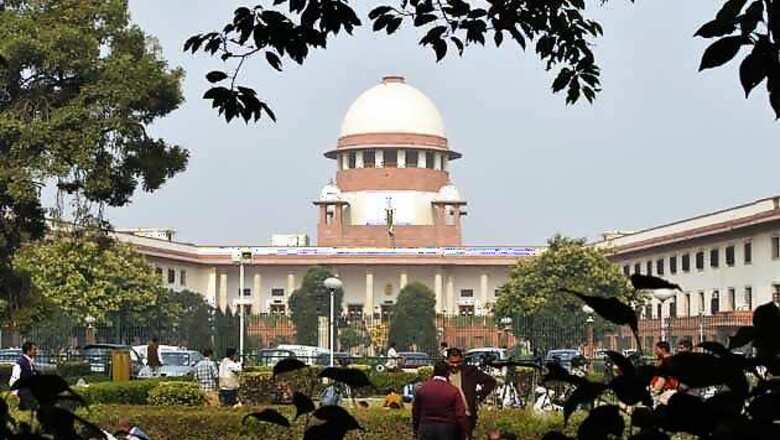
views
The government on April 13, 2015 had notified the National Judicial Appointments Commission Act, 2014 and the Constitution (Ninety-ninth Amendment) Act, 2014 for bringing in a change in the collegium system for appointment of Judges in Supreme Court and High Courts.
The Constitution (Ninety Ninth Amendment) Act, 2014 provides for the composition and the functions of the proposed NJAC.
The government claimed that the acts provide for a transparent and broad-based process of selection of Judges of the Supreme Court and High Courts by the NJAC. The NJAC was to be chaired by the Chief Justice of India as in the earlier collegium system. The NJAC membership had to include two senior most Judges of the Supreme Court, the Union Minister of Law and Justice, two eminent persons to be nominated by a committee of the Prime Minister of India, the Chief Justice of India, and the Leader of the Opposition in the House of the People, or if there is no Leader of the Opposition, then the Leader of the single largest Opposition Party in the House of the People.
With a view to ensure that the composition of the National Judicial Appointments Commission is inclusive, the government said that the Act provided that one of the eminent persons shall be nominated from amongst persons belonging to the Scheduled Caste, the Scheduled Tribes, Other Backward Classes, Minorities or Women. The NJAC was to frame its own regulations.
Two Bills titled 'The Constitution (One Hundred and Twenty First Amendment) Bill, 2014' and 'The National Judicial Appointments Commission Bill, 2014' were passed unanimously by the Lok Sabha on August 13, 2014 and Rajya Sabha on August 14, 2014 respectively. Subsequently these Bills were ratified by the required number of State legislatures before getting the President’s assent. The Constitution (One Hundred and Twenty First Amendment) Bill, 2014 enacted as the Constitution (Ninety Ninth Amendment) Act and the National Judicial Appointments Commission Act, 2014 were published in Gazette of India on 31st December 2014. Both the Acts were to come into force on such date as the Central Government would notify them in the Official Gazette.
















Comments
0 comment